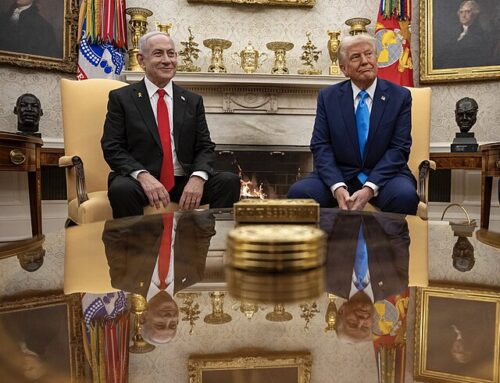I begin with the poignant profile by Amira Hass in Haaretz, “Mer-Khamis and binational resistance movement“:
Those who knew Juliano Mer-Khamis, the Nazareth-born actor and director who was shot in Jenin on Monday, will have to be the ones to write about him….
…. He was born Palestinian and Jewish, Jewish and Palestinian. … Juliano embodied the potential of a shared life (ta’ayush in Arabic ) while striving for equality. The son of a Jewish mother and a Palestinian father, he was born to two cultures, and chose to live in both. …
My guess is that Juliano wasn’t entertaining illusions; sustaining blows from all sides, the potential of ta’ayush shrank. Ta’ayush is the sane vision, but the chance that it will be realized is increasingly slim. …
As this NY Times article indicates, it’s not quite right to characterize this man as a “peace activist.” For one thing, he opposed a two-state solution: “Mr. Mer Khamis could not accept a two-state solution for the Israeli-Palestinian conflict, which he felt would essentially mean division. He advocated the idea of one state with equal rights for both peoples.”
While a single bi-national state is clearly an idealistic (even noble) notion,
it’s perhaps emblematic of its impracticality that this unusual man was murdered. And it’s chilling to read (in this same Times article) what became of so many alumni of his mother’s Jenin theater:
Mr. Mer Khamis was laid to rest in a kibbutz in northern Israel in a grave next to that of his mother, Arna Mer, an Israeli activist who devoted her own last years to the children of Jenin.
In a movie that Mr. Mer Khamis made about his mother’s legacy, “Arna’s Children,” Mr. Mer Khamis … presents both the promise and the limitations of an effort to enrich lives in the Jenin refugee camp, which a decade ago was a hotbed of militancy and a prime source of suicide bombers who went to blow themselves up in Israel.
In the movie, Mr. Mer Khamis tracks a few of the children who acted in his mother’s children’s theater here in the 1990s. The second intifada, or Palestinian uprising, erupted in 2000 and led to an Israeli military invasion of the Jenin refugee camp in 2002, with heavy losses on both sides. During this period, some of the budding actors became hardened fighters; many others died.
The youngest of them joined Islamic Jihad and was killed in a clash with Israeli soldiers. His brother, known as the joker of the group, went on a suicide mission with a friend, fatally shooting four women in the Israeli town of Hadera before police officers gunned them down. A third led a group of militants and was killed.
Today, the core of the Freedom Theater staff and its supporters say they do not oppose armed struggle and that the Palestinians may resist the Israeli occupation by all means….



Hello. And Bye.